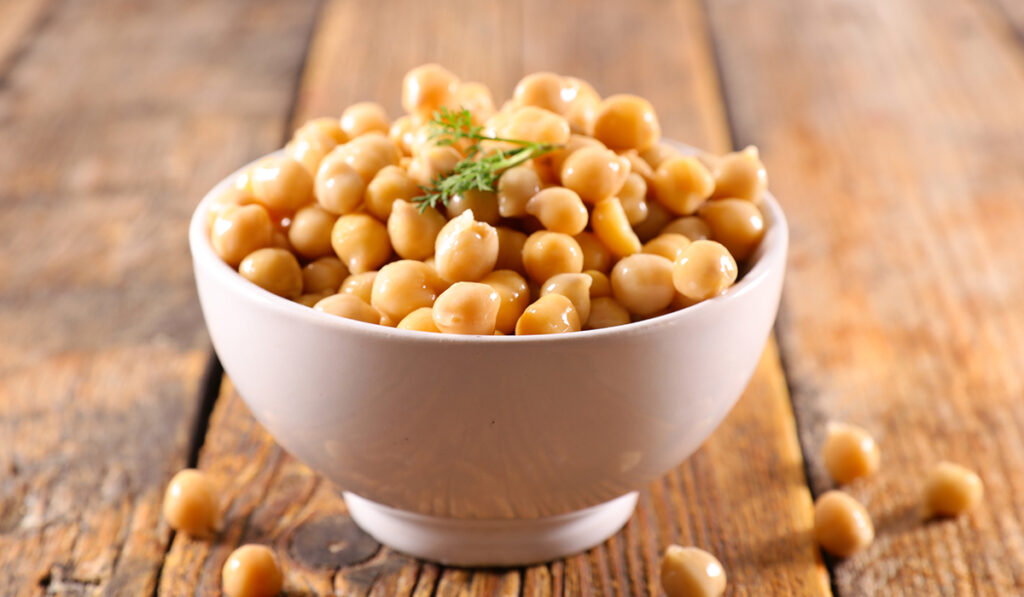In the United States, the average daily carbohydrate intake sits at a hefty 275-325 grams per day, predominantly fueled by overconsumption of grains and processed sugary foods. This dietary pattern has played a pivotal role in escalating rates of obesity, insulin resistance, and inflammation, leading to widespread metabolic health issues across the nation.
The high intake of processed carbs disrupts our body’s natural insulin response and contributes to chronic inflammation, setting the stage for a myriad of health complications. As we delve deeper into the impact of these dietary choices, it becomes clear that a shift towards more balanced and nutrient-dense food sources is imperative for improving public health outcomes.
Shelf-Life Comes At a Cost
Over the past few decades, food companies have increasingly shifted towards producing more processed foods rich in carbohydrates, driven by economic and consumer demands. An emphasis on cost-efficiency, shelf stability, and mass production scalability has marked this evolution in food manufacturing. The allure of these foods is often their highly palatable combination of fats, sugars, and salts, engineered to tap into our innate preferences and trigger reward centers in the brain, thus encouraging overconsumption.

This shift has made processed foods ubiquitous, convenient, and significantly more appealing than their less processed or whole-food counterparts. As a result, these calorie-dense, nutrient-poor options have become a staple in many diets, contributing to the current public health challenges related to diet and chronic disease.
Some Carbs DO Have Their Place
The strategic inclusion of carbohydrates in the diet, focusing on proper timing, type, and quantity, can yield substantial health benefits beyond mere sustenance. Consuming the right type of carbs at optimal times, particularly around periods of physical activity, can significantly enhance physical and mental energy. This targeted carb intake helps replenish glycogen stores, which are crucial for sustained energy and endurance. It also aids in the efficient functioning of the brain, enhancing cognitive processes and mood.
Moreover, well-timed carbohydrate consumption can positively influence hormonal balance. It helps reduce cortisol levels, the body’s primary stress hormone, which, in high amounts, can lead to various health issues, including metabolic dysfunction.
Additionally, eating carbs can trigger the release of leptin, the hormone responsible for regulating hunger and energy balance, which can boost metabolism and thyroid function—both vital components of overall health. The thyroid gland relies on glucose to maintain regular function, so adequate carb intake supports this essential hormone-producing organ and a healthy metabolic rate.

Post-exercise, the right carbs can accelerate recovery by quickly restoring muscle glycogen, reducing muscle soreness, and preparing the body for future workouts. Furthermore, consuming carbohydrates in the evening may promote more restful sleep, as they help produce serotonin and melatonin, neurotransmitters that play a role in sleep regulation. Thus, when incorporated thoughtfully, carbohydrates can be a powerful tool in enhancing overall health, recovery, and well-being.
Clean Carb Sources to Consider

Organic White Rice: Organic white rice, surprisingly, can be easier on the digestive system than its whole-grain counterpart, brown rice. It is less allergenic and contains lower levels of phytic acid, an antinutrient that can bind minerals and reduce their absorption. White rice provides a quick energy source and is a staple in many diets worldwide, often favored for its neutral flavor and adaptability in various dishes.

Russet and Yukon Potatoes: Russet and Yukon potatoes are excellent sources of carbohydrates that offer unique benefits when cooled after cooking. The cooling process increases their resistant starch content, which means they have a lower impact on blood sugar levels than when they are eaten hot. This makes them a good choice for maintaining energy levels and supporting metabolic health. Additionally, these potatoes are versatile and can be used in a variety of nutritious dishes.

Pumpkin and Sweet Potato: Both pumpkin and sweet potato are rich in carbohydrates and are excellent sources of dietary fiber, vitamins, and minerals. They are exceptionally high in beta-carotene, which the body converts into vitamin A, essential for healthy skin, vision, and immune function. Their natural sweetness and dense nutrient profile make them beneficial for sustained energy release, while their high fiber content helps with digestive health.

Fruit: Fruits are a naturally sweet source of carbohydrates and are loaded with antioxidants and potassium. These nutrients are crucial for reducing oxidative stress and managing blood pressure. Potassium also plays a role in balancing blood sugar levels and enhancing muscle and nerve function. Fruits like berries, oranges, kiwi, and pineapple are refreshing and provide essential fibers and a range of vitamins that support overall health.

Chickpeas: Chickpeas are a type of legume that offers a substantial amount of carbohydrates, protein, and fiber, making them an excellent choice for sustained energy and satiety. They are also rich in vitamins and minerals, including iron, phosphorus, and B vitamins, vital for energy metabolism and overall health. Their versatility allows them to be incorporated into various dishes, from salads to stews, providing nutritional benefits and culinary diversity.

Raw Honey: Raw honey is a natural sweetener that offers more than just carbohydrates; it is rich in antioxidants, enzymes, and trace minerals like zinc and selenium, contributing to its health benefits. Raw honey retains these nutrients, unlike processed honey, due to its minimal processing. It’s often recognized for its antibacterial and anti-inflammatory properties, making it beneficial for wound healing and a natural remedy for coughs and sore throats. Additionally, raw honey can provide a quick boost of energy due to its natural sugars, which are easily absorbed by the body.

Maple Syrup: Maple syrup is another natural sweetener that provides carbohydrates and a suite of antioxidants and minerals like manganese and zinc, which are crucial for energy production and immune health. It’s made from the sap of maple trees and contains fewer calories and a higher concentration of minerals than honey. Maple syrup’s lower glycemic index compared to refined sugar makes it a preferable choice for gradually releasing energy and reducing spikes in blood sugar. Its unique flavor also makes it a favorite for enhancing the taste of various dishes, from breakfast foods to desserts.
Strategies for Healthy Weight Loss, Sleep, and Recovery
When considering carbohydrate intake, a strategic approach to both quantity and timing can optimize energy levels, aid in weight loss, and enhance mental clarity. Consuming around 100 grams of carbohydrates daily is a moderate approach that can help meet these goals, especially when timed correctly.

Timing carbohydrate intake around workouts—consuming them primarily pre- and post-exercise—ensures that carbs are used as an immediate fuel source and aids in recovery by replenishing muscle glycogen stores. This method supports sustained energy levels during physical activity and boosts overall metabolism.
Additionally, backloading carbohydrates later in the day can improve insulin sensitivity, as the body’s improved glucose management post-exercise continues to be effective. Eating carbs in the evening can also help promote more restful sleep by influencing serotonin production, a neurotransmitter that regulates sleep cycles. Implementing these strategies allows for a more targeted and effective use of carbohydrates tailored to personal health goals and daily energy demands.
To Recap
Reducing the intake of poor carbohydrate choices and focusing on mindful selection, timing, and quantity of healthier options can significantly enhance overall health. The typical American diet is heavy on grains and processed sugary foods, which contribute to a range of health issues like obesity and insulin resistance. By strategically consuming around 100 grams of quality carbohydrates daily, particularly around workouts and in the evening, individuals can improve physical and mental energy, regulate hormones such as cortisol and leptin, and promote restful sleep.
Emphasizing nutrient-dense sources like organic white rice, cooled potatoes, fruits, and legumes and minimizing highly processed options supports better metabolic health and aids in effective weight management and overall well-being. This mindful approach to carbohydrate consumption is key to transforming dietary habits and achieving lasting health improvements.
Get the nutrition you need and the flavors you crave.
Shop Meals >






